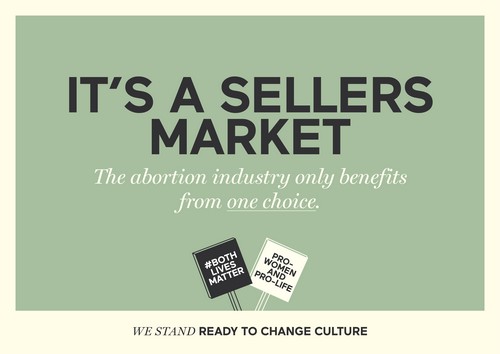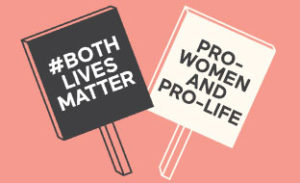As part of a series of reflections for the 5oth anniversary of the 1967 Abortion Act, Dr Dave Landrum, Director of Advocacy at the Evangelical Alliance, considers how, with the benefit of fifty years of lived experience and government data, we can now understand the impact of that law change. Has the ’67 Act benefited or harmed women?
We hope that these contributions from people across the British Isles and Ireland will provide some much needed context and perspective to this sensitive issue.
“A lot has happened in the 50 years that have passed since the 1967 Abortion Act. Of course, most notably, the lives of around 8 million people in the UK have been ‘lost’ – or perhaps more accurately ‘stopped’. We can only imagine what contributions these people would have made to our relationships, communities and nations. It is a heart-breaking situation, with terrible consequences for the human psyche and for our societal relationhsips.
During this half century of abortion, there have been numerous debates on what constitutes life, the value thereof, and who should have power over it. These are hugely important questions. Philosophically and politically, they have exposed deep fissures about things like human nature, identity and connectedness. These have played out in numerous campaigns, parliamentary debates and media stories. Sadly, despite all the scientific evidence, the legal and cultural trajectory has been almost entirely in the direction of radical liberalisation.
Disturbingly, when one reviews the early debates ahead of the 1967 Act, it is notable that the stated intentions of its proponents were never to see abortion become a form of contraception by which about a quarter of all children conceived in the UK are terminated by their parents. Even the great architect of the 1967 Act, David Steel felt it necessary to express concern about the pace and scale at which the normalisation of a clinical procedure happened, admitting that he never anticipated “anything like” the number of terminations that are occurring. Added to this, when feminist advocates for abortion such as Germaine Greer begin to cast criticism of how abortion has become an industry that largely benefits men, both financially and in terms of evading responsibilities, then it’s clear that the law of unintended consequences is at work.

How did this happen? How exactly did abortion develop on such an industrial scale? The historical context of the 1960’s no doubt played a part. As did the impotency of various pro-life campaigning strategies. But when intentions are supplanted by agendas in this way, it’s the realm of ideas that may provide the best answers – and possibly the best solutions.
The Irish philosopher Edmund Burke observed that we all have obligations to the dead (those who went before us), the living (those who are with us) and the unborn (those who come after us). Unquestionably, the emotional energy of our age is very much focussed of the middle category. Cloaked in language about empowerment and equality, secularised Western societies now have an obsessive preoccupation with the omni-individual self – me – in the here and now. Fuelled by the myth of progress, this is accompanied by a disdain for the lessons of history, and a general disregard for the impact of our own actions and appetites on future generations. The 2008 ‘credit crunch’ being a good example of this.
Intellectually, this was possible through the ascendency and collapse of cultural Marxism in our universities, and after the fall of communism, the subsequent embrace of social constructivism by what was left of the left-wing intelligentsia. Ergo, identity politics and what Pope Benedict identified as “a dictatorship of relativism which does not recognize anything as for certain and which has as its highest goal one’s own ego and one’s own desires.” Politically, we see this playing out with secularism extending via sexualism across a whole swathe of public policy to devastating effect. All reducing Burke’s continuum to the singularity of the self.
In our so-called ‘advanced’ liberal Western societies, this attitude has been dressed politically in the totalising creed of human rights, and dressed economically in the totalising creed of consumerism. Socially, this combination has proved deadly to those who lack voice and power, particularly for poor people and communities, and of course for the unborn.
Critiquing such ideological vacuity is not difficult. Indeed, as its inherent contradictions become increasingly apparent, it’s rather easy to do. However, in relation to abortion, the challenge, indeed the urgent priority of all those wish to see it dramatically reduced, is to expose and critique the direct link with consumerism. This involves illustrating how abortion has been subsumed by free-market, neo-liberal ideas that are inexorably commodifying humans, making us exploitable, tradable, and disposable. In a world of so many injustices and inequalities, these market-led eugenics eclipse any ideological agendas that co-opt calls for women’s rights. This is a human rights issue of the first order – quite literally a matter of life and death. Indeed, when set in the context of other consumer developments such as the emerging underclass, the robotics and automation revolution and bio-engineering, unless we recapture and revalue the specialness (also known as sanctity) of human life we are heading for deep trouble.
Ordinarily, positing such a critique of consumerism would seem like a natural function of the left. However, with the left now dominated by socially liberal elites, its easy fascination with identity politics has served to relegate socio-economic issues (also known as class) to mere platitudes. While the right, being largely dominated by economically liberal elites, has an easy fascination with forms of libertarianism that all too easily embrace and promote the consumer revolution. So where will the response come from? Who will make the link between consumerism and abortion?
Today, as populism and nationalism grow in reaction to globalisation, we are seeing how Western societies are developing their battle lines for culture wars. Along these lines, a neat ideological divide between pro-choice and pro-life is being presented. Although, over time, one might expect this situation to deliver some minor legislative gains regarding abortion, in the absence of new ideas one could also expect the next 50 years to look depressingly similar to the last 50 years. This places a responsibility on all who believe that both lives matter to be more creative, innovative and persistent in showing how abortion has become a pernicious facet of consumerism – and to remind people that to consume something means to destroy it. We simply must take the opportunity that this inauspicious anniversary gives us to consider what this new kind of approach might look like.
One thing is for certain. If we do what we’ve always done, we’ll get what we’ve always got.”

